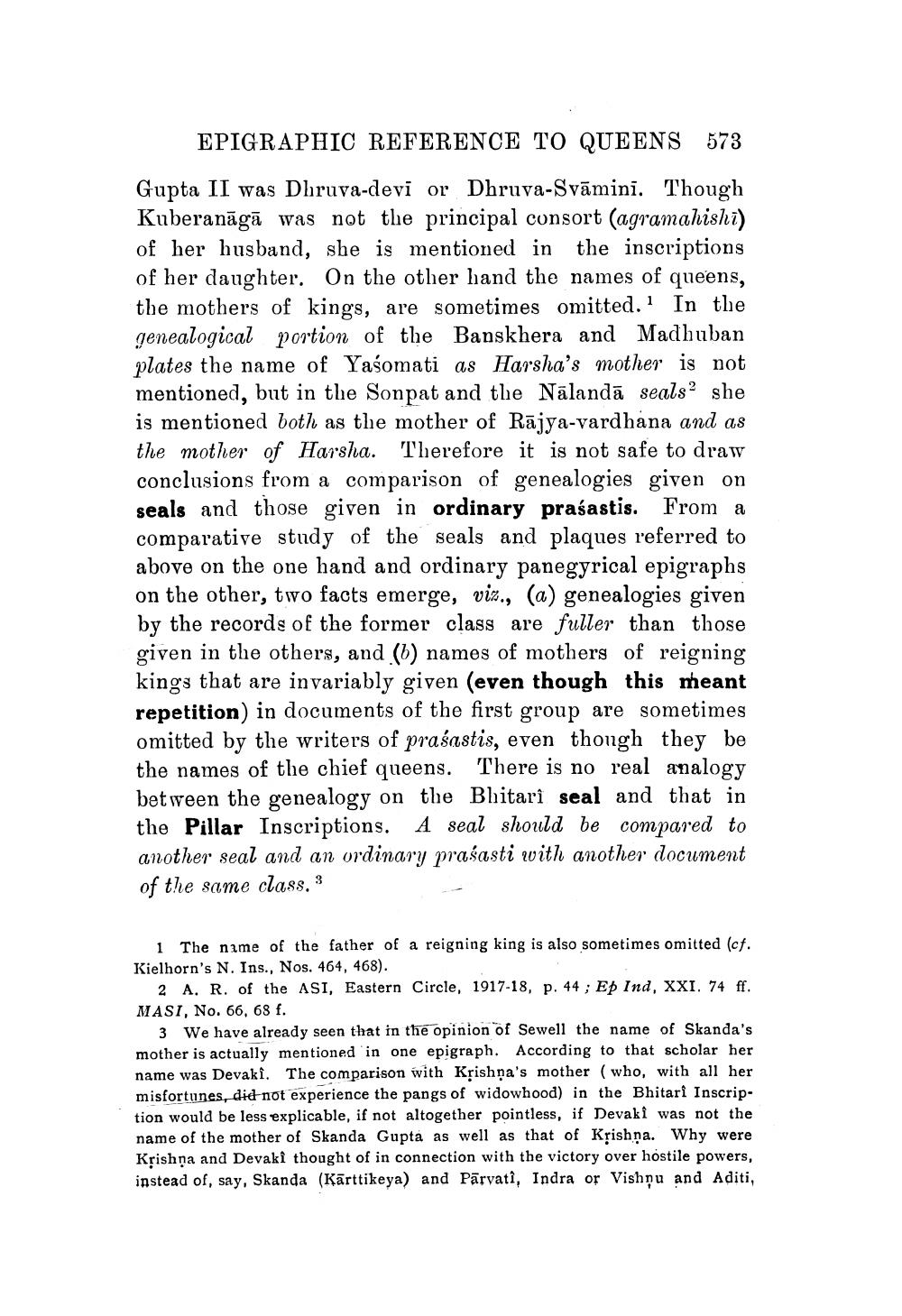________________
EPIGRAPHIC REFERENCE TO QUEENS 573 Gupta II was Dhruva-devi or Dhruva-Svāmini. Though Kuberanāgā was not the principal consort (agramahishi) of her husband, she is mentioned in the inscriptions of her daughter. On the other hand the names of queens, the mothers of kings, are sometimes omitted. In the genealogical portion of the Banskhera and Madhuban plates the name of Yaśomati as Harsha's mother is not mentioned, but in the Sonpat and the Nālandā seals? she is mentioned both as the mother of Rājya-vardhana and as the mother of Harsha. Therefore it is not safe to draw conclusions from a comparison of genealogies given on seals and those given in ordinary praśastis. From a comparative study of the seals and plaques referred to above on the one hand and ordinary panegyrical epigraphs on the other, two facts emerge, viz., (a) genealogies given by the records of the former class are fuller than those given in the others, and (b) names of mothers of reigning kings that are invariably given (even though this meant repetition) in documents of the first group are sometimes omitted by the writers of praśastis, even though they be the names of the chief queens. There is no real analogy between the genealogy on the Bhitarî seal and that in the Pillar Inscriptions. A seal should be compared to another seal and an ordinary praśasti with another document of the same class. 3
1 The name of the father of a reigning king is also sometimes omitted (cf. Kielhorn's N. Ins., Nos. 464, 468).
2 A. R. of the ASI, Eastern Circle, 1917-18, p. 44; Ep Ind, XXI. 74 ff. MASI, No. 66, 68 f.
3 We have already seen that in the opinion of Sewell the name of Skanda's mother is actually mentioned in one epigraph. According to that scholar her name was Devaki. The comparison with Kțishna's mother (who, with all her misfortunes, did not experience the pangs of widowhood) in the Bhitari Inscription would be less explicable, if not altogether pointless, if Devaki was not the name of the mother of Skanda Gupta as well as that of Krishna. Why were Krishna and Devaki thought of in connection with the victory over hostile powers, instead of, say, Skanda (Kārttikeya) and Pārvatî, Indra or Vishņu and Aditi,




